Dermatologists: Why It’s So Important to Wear Sunscreen Year Round — Especially in Winter
If you're like us, you've probably skipped an application or two of sunscreen during the summer when in a rush to leave the house. Not to mention all the times you let it slide during the colder months thinking, "the sun isn't that strong now anyway." But according to dermatologists, not only is the sun still capable of causing damage, there are times during the winter when it's just as dangerous to skin as it is during the summer! Keep scrolling to learn more from skin pros about the importance of wearing sunscreen in winter, and how to choose the best ones for you.
Why wear sunscreen year-round?
It’s a myth that the sun’s rays can’t harm you in the winter months. Sure, the Earth tilts away from the sun during wintertime, so we aren’t as close to the hot glowing ball of hydrogen and helium. But surprisingly, despite this, the rays it emits in some cases can be even more powerful — and dangerous. Studies show that sun exposure is nearly doubled when snow is on the ground because snow reflects 80% of rays back onto us, damaging the skin and potentially damaging vision, too. The potential harm increases as you climb to higher elevations. That’s why it’s essential to keep sunscreen in your skincare regimen — all year round, regardless of skin color or ethnicity.
You could be doing irreparable damage, whether you’re hitting the slopes or just taking a brisk stroll around the block. “The DNA in our skin cells gets damaged when the skin is unprotected and exposed to UVA and UVB radiation from the sun. These damaged skin cells can be altered, generating genetic defects and mutations, which can lead to skin cancer and premature aging. UV rays can also damage the eyes, causing cataracts and cancers of the eye and eyelid,” says dermatology nurse practitioner and doctor of nursing practice Jodi LoGerfo, DNP, APRN, FNP-C.
As Dr. LoGerfo explains, the risks of winter sun exposure go more than skin deep. “UV exposure has been recognized as a harbinger of melanoma, a dangerous type of skin cancer. The UV rays that injure skin cells can also change and modify a gene that suppresses tumors, increasing the possibility of acquiring skin cancer in sun-damaged skin cells,” explains Dr. LoGerfo.
The sun is also the culprit behind as much as 90% of the visible skin changes commonly attributed to aging, and daily protection is the simplest — and only — way to avoid it. “Always wear broad-spectrum sunscreen with at least SPF 30 during the day, even on cloudy days. I'd suggest sunscreens that include antioxidants, too,” says Hamdan Abdullah Hamed, MD, dermatologist and expert for The Body Shop.
Also important to note: SPF stands for ‘sun protection factor’ and 30 means that it’ll filter 97% of the sun’s rays. It’s a common misconception that the number stands for the amount of time it’s safe to stay out in the sun while wearing it.
If you aren’t yet convinced, keep reading for all the reasons you should diligently apply that sunscreen all year round!
What are the benefits of wearing sunscreen in winter
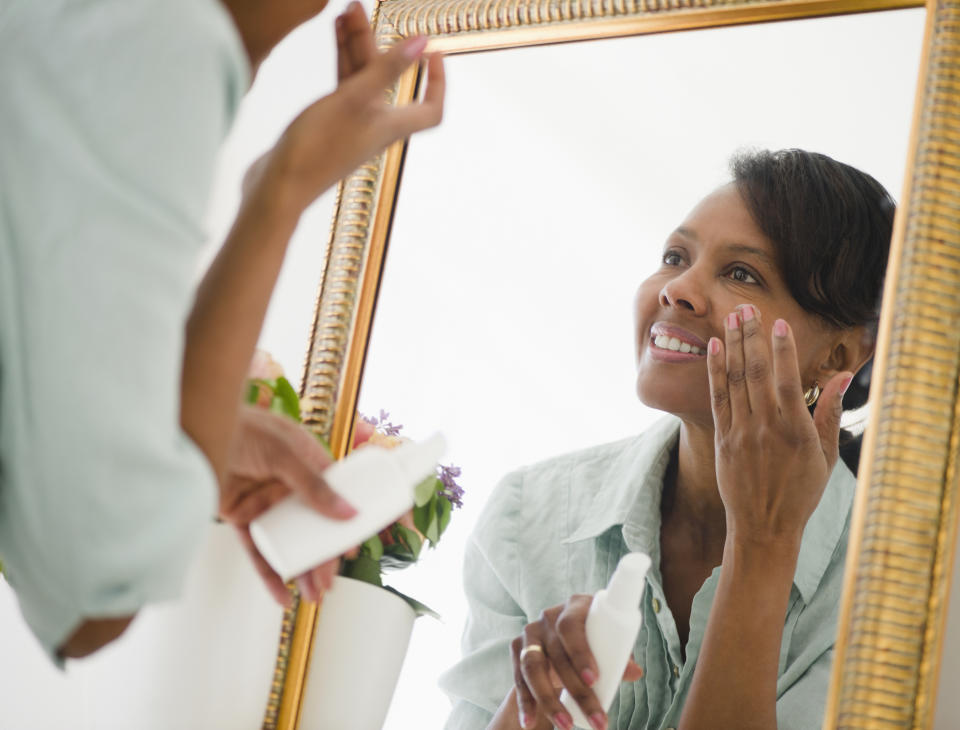
Basically, the benefits are the same any time of year, but you boost the benefits by being diligent no matter how sunny it is outside.
1. Why wear sunscreen in winter: It can prevent cancer
Again, UV radiation is a proven human carcinogen. “UV radiation results in basal cell carcinoma (BCC) and squamous cell carcinoma (SCC) of the skin; both of these types of cancers frequently develop on sun-exposed areas of skin. When UV exposure culminates in a sunburn, an individual’s chance of melanoma increases,” says Dr. LoGerfo. The longer you are exposed, the greater your risk.
2. It helps you look younger
If you expose your skin to the sun without any protection, the components of your skin (e.g., collagen, elastin, skin cells and overall skin structure) become damaged, says Dr. LoGerfo. Over time, this can lead to fine lines, wrinkles and age spots.
3. Why wear sunscreen in winter: It can decrease inflammation
We’ve heard all about the importance of anti-inflammatory foods, and we know reducing stress helps as well since chronic inflammation can be detrimental to our overall health, but slathering on that sunblock can also be anti-inflammatory. “The sun’s rays can affect the skin and trigger an immune response which can cause inflammation. This inflammation can aggravate certain skin conditions like psoriasis, eczema or rosacea,” explains Dr. LoGerfo.
What type of sunscreen should I use in the winter?
Dermatologists say there isn’t much difference between what you should apply during the winter and summer months. “A physical block with zinc or titanium dioxide as the main ingredient is less likely to irritate if your skin tends to get irritated or dry in the winter months,” advises Dr. LoGerfo. You’ll want to apply this 15 minutes before sun exposure and every two hours (more if you swim or sweat), as you would if you were at the beach for the day, advises the American Academy of Dermatology (AAD). Don’t overlook areas like the ears, nose, lips, back of the neck and tops of the hands and feet, says the AAD.
If you want to take it a step further, Dr. LoGerfo is excited about a new class of sunscreens known as ‘tinted sunscreen.’ They can not only help liven up pasty, pale winter skin but also ??be even more effective than regular sunscreen because they also block out harmful blue light emitted from our computers and cell phones.
“The tint is attained by integrating a blend of iron oxides and pigmentary titanium dioxide, combining broad spectrum mineral UV filters with added pigments. They can be even more effective in blocking the sun’s harmful rays because the skin is safeguarded indoors and outdoors. Blue light has been shown to cause oxidative stress on the skin, which can also cause wrinkles, fine lines and hyperpigmentation,” states Dr. LoGerfo.
Related: 13 Best Lightweight Sunscreens for Women Over 50
What are some ways to get protection without sunscreen?
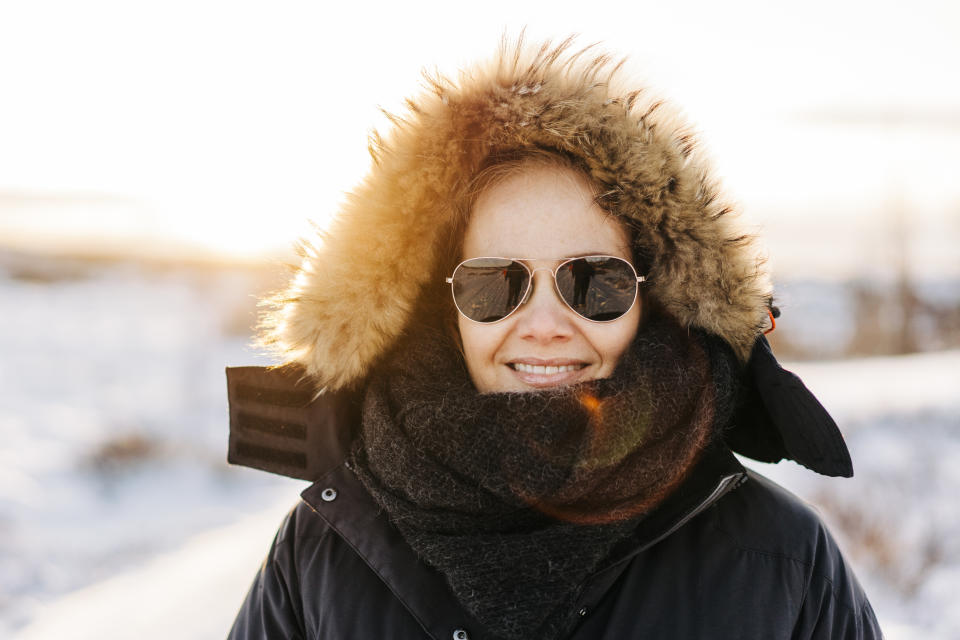
When life gets busy, it can be hard to remember to apply that daily layer of sunscreen. But doctors say even though sunblock is the best level of defense, you can protect your skin from the sun in other ways.
“Sun damage is easier to prevent than treat!” exclaims Dr. LoGerfo. You should avoid the sun during its peak ‘burning’ hours of 10 AM and 4 PM, stay covered and wear UV protective clothing whenever possible, in addition to a broad-brimmed hat and UV-blocking sunglasses.
You should also avoid tanning beds, self-exam your skin head-to-toe once a month to look for any changes in moles or birthmarks and have a professional skin exam by a dermatologist once a year (more often if you have a history of skin cancer).
Makeup is also moonlighting as sun protection these days with products that cover flaws and imperfections and provide the necessary SPF, too. Colorscience is an entire makeup line with built-in sunscreen and is recommended by the Skin Cancer Foundation. Drugstore brands like Revlon also get in on the action with a foundation including SPF (although it's less than the doctor-recommended 30).
Double-duty sunscreens for winter
Besides makeup with sunscreen, some sunscreens also contain anti-aging ingredients and other ingredients that make your skin both look and feel good while you’re wearing it. Here are a few to try:
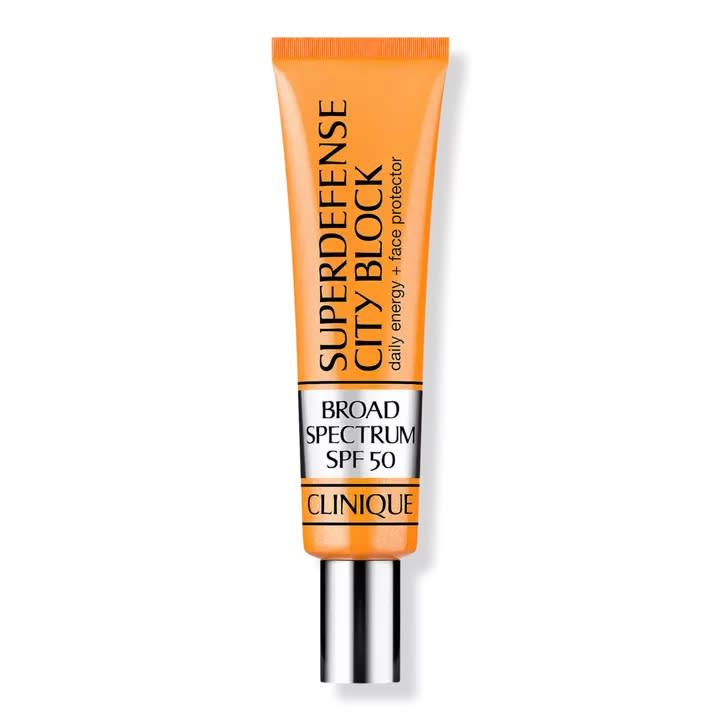
Clinique City Block (Buy from Ulta, $34)
Dr. LoGerfo sings the praises of this sunscreen that is broad-spectrum, sheer and offers “super-defense” against the sun with an SPF of 50. “It has great coverage and also looks great,” she says.
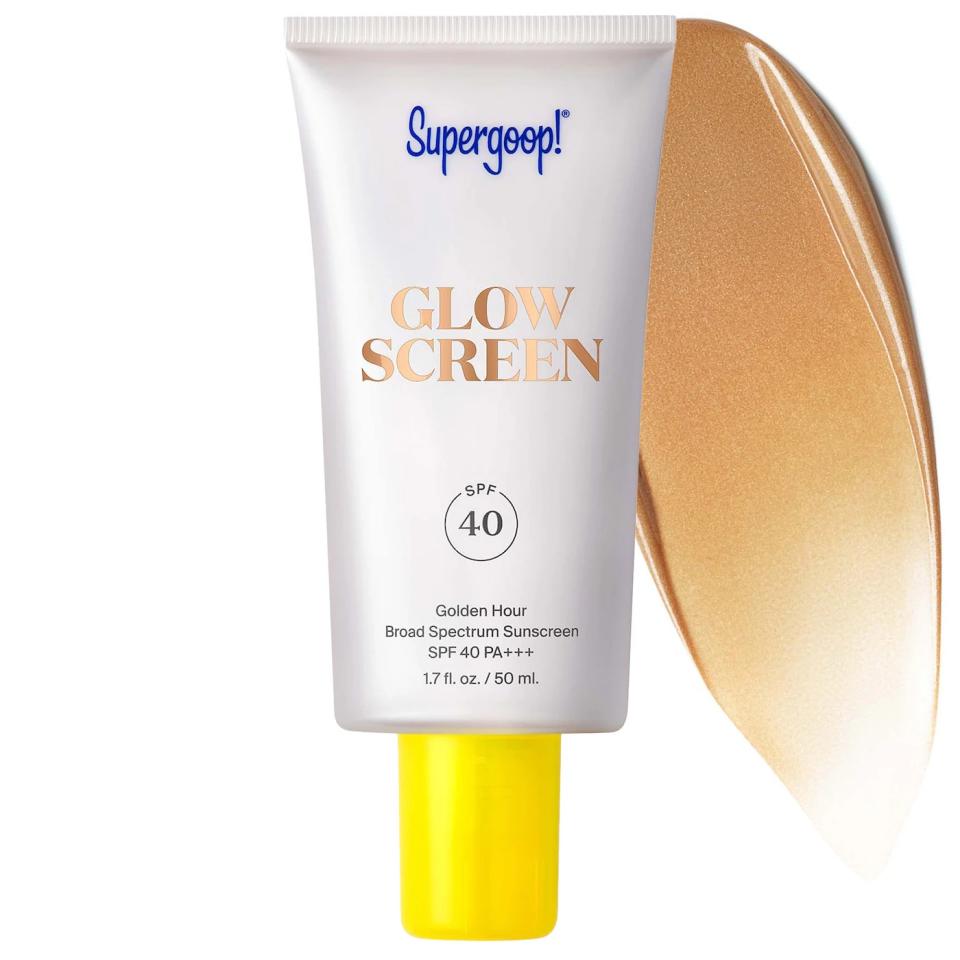
Supergoop! Glowscreen SPF 40 (Buy from Sephora, $38)
This is one of these aforementioned tinted sunscreens Dr. LoGerfo raves about, but besides a flattering tint and an SPF of 40, you’re also getting a built-in anti-aging serum. This product contains hyaluronic acid and niacinamide, which is hydrating and improves the skin’s protective barrier to maintain moisture levels.
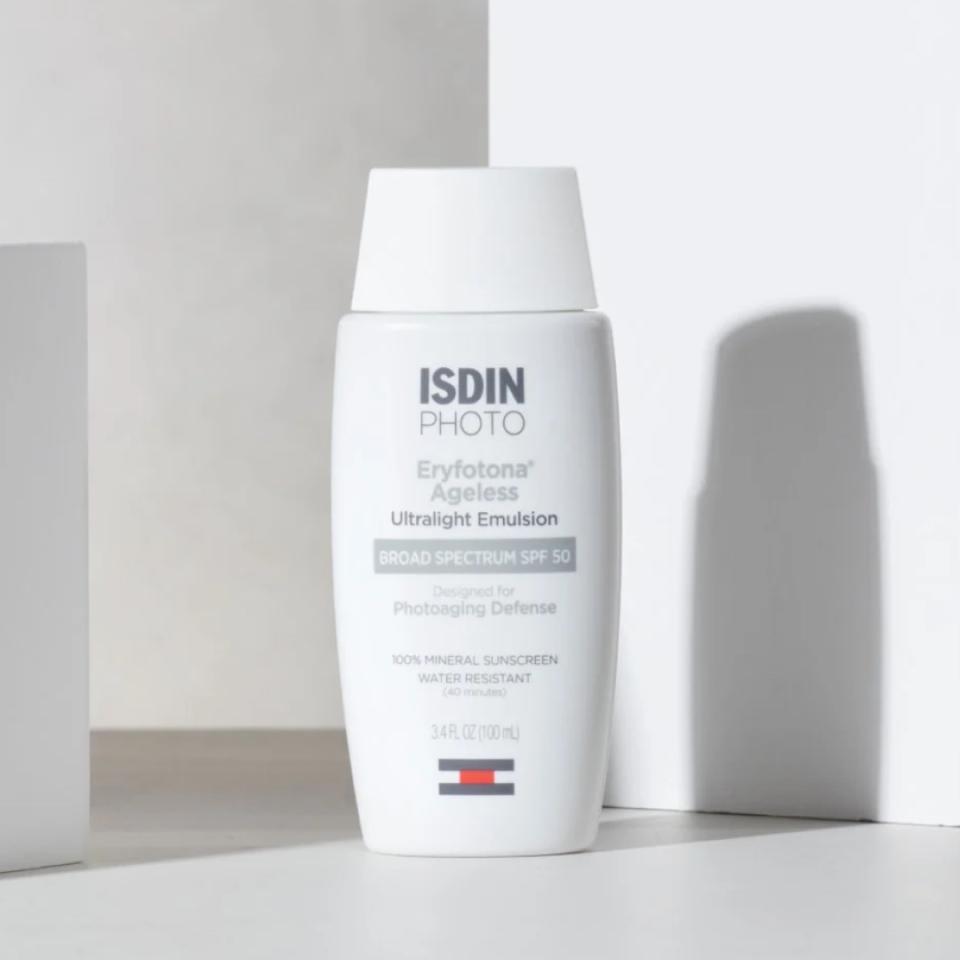
Isdin Tinted Sunscreen (Buy from Isdin, $75)
Another tinted option, this is super lightweight and 100% mineral (read: non-irritating) and has some great anti-aging ingredients like wrinkle-smoothing peptides. "I find this sunscreen to be soothing,” says Dr. LoGerfo.
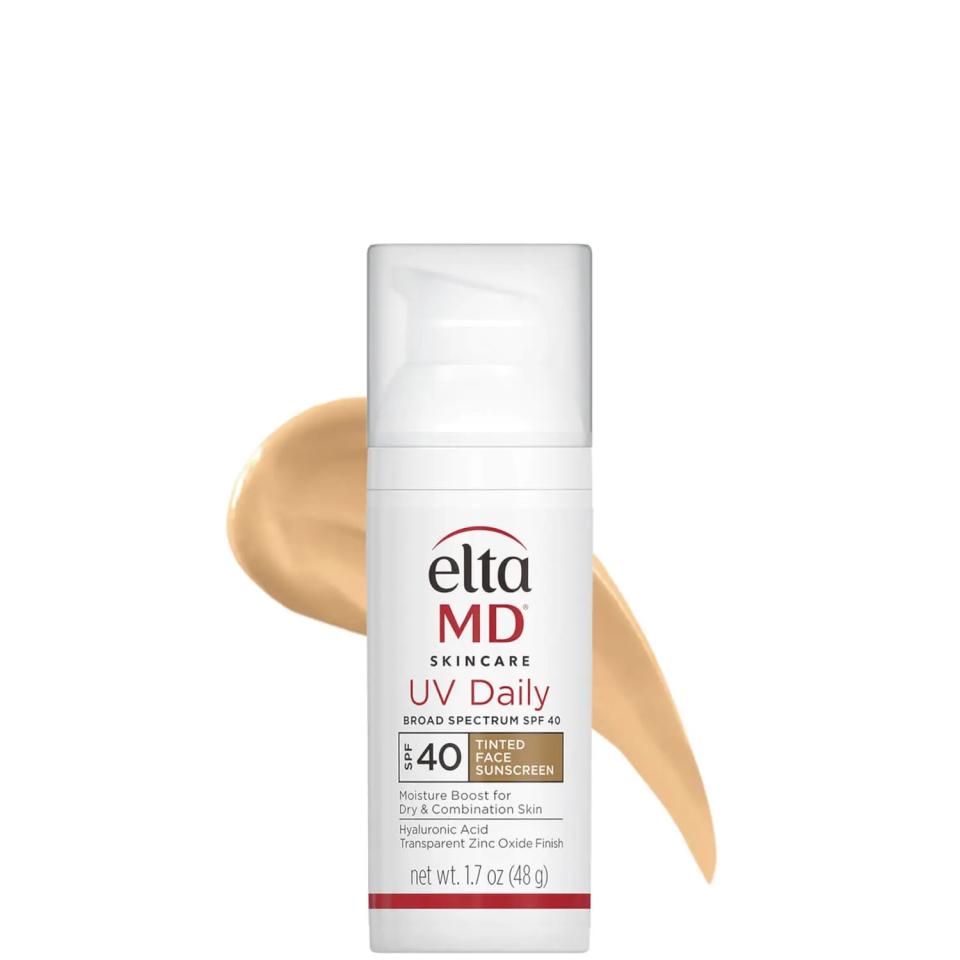
EltaMD UV Daily Tinted (Buy from Dermstore, $41)
This is lightly tinted but also pulls double duty by color-correcting redness in the skin and moisturizing with hyaluronic acid. It protects from photo-induced premature aging and is packed with vitamins E and C. “It’s very comfortable to wear and makes skin look flawless,” attests Dr. LoGerfo.
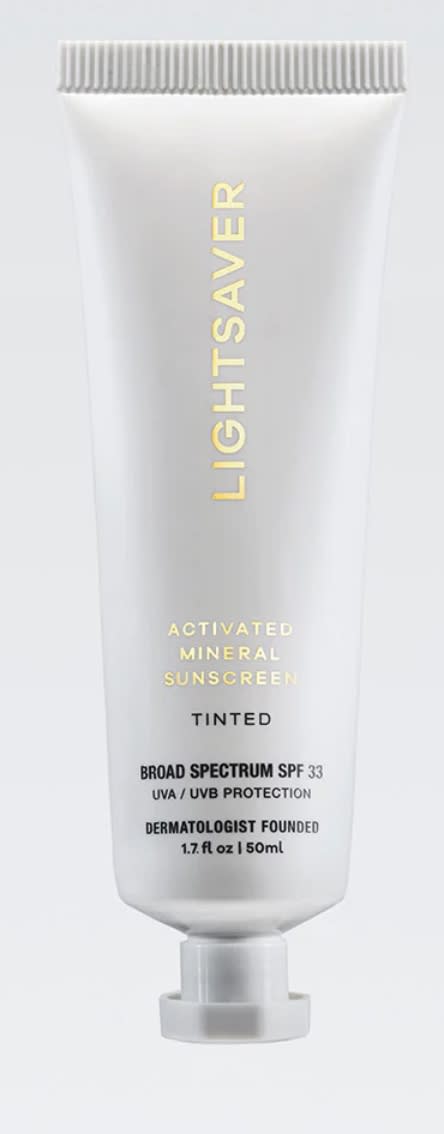
Lightsaver Activated Mineral Sunscreen SPF 33 (Buy from Lightsaver, $45)
This mineral and tinted sunscreen contains a blend of photolyase, niacinamide, squalane and lingonberry. It’s the ultimate multitasker, designed to help repair signs of sun damage, brighten, moisturize and provide blue light protection. It has a silky-smooth whipped texture and a sheer tint that melts into your skin and is suitable for oily and sensitive skin.
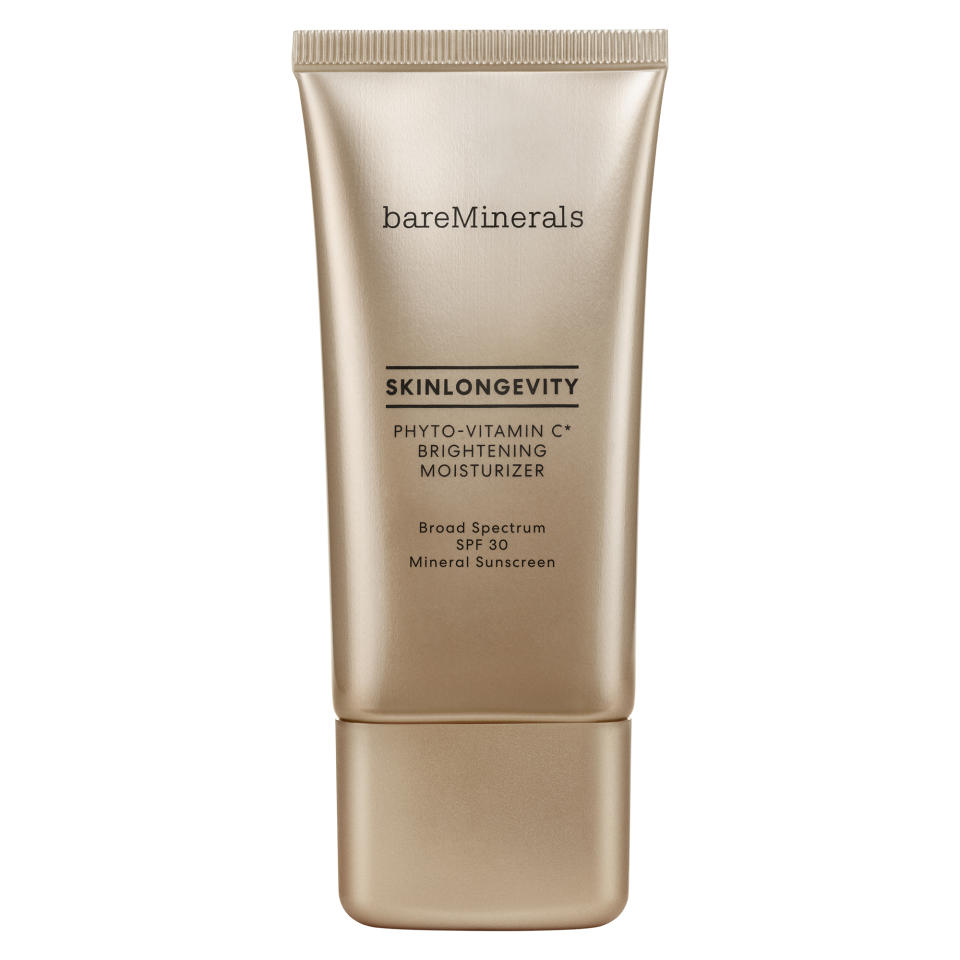
bareMinerals SKINLONGEVITY Phyto-Vitamin C Brightening Moisturizer SPF 30 Mineral Sunscreen (Buy from Ulta, $50)
This is the ultimate multi-tasker because it protects, hydrates and brightens skin by fading sun spots and areas of hyperpigmentation. The company says it’s clinically proven to improve skin’s texture and tone and deliver 24-hour hydration.
First For Women aims to feature only the best products and services. We update when possible, but deals expire and prices can change. If you buy something via one of our links, we may earn a commission. Questions? Reach us at [email protected]
For more of our favorite skin care tips and products, click through these stories:
“I’m a Dermatologist and Doing These 4 Steps Every Morning Ensures a Youthful Glow All Day!”
The Trending Treatment That Leaves Skin Looking Radiant In Just 10 Minutes
Top Dermatologist Reveals How *These* Stickers Can Make a Pimple Disappear Fast
